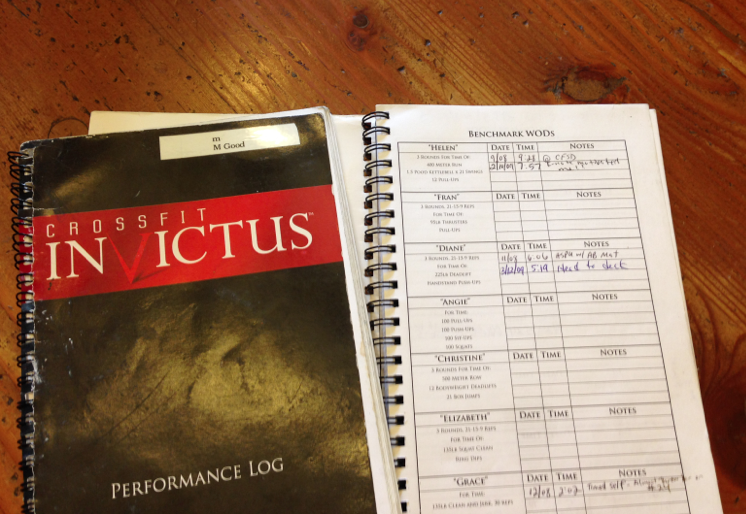How Logging Your Workouts Can Lead to Weight Loss
Written by Michele Vieux
Are you stagnant in your weight loss goal? Are you keeping track of all your numbers and PRs? You might be wondering what one has to do with the other and why we are always suggesting that you keep a logbook of your times, lifts, workouts and more. Well, besides having a visual record of if you are improving or not, knowing how much you can safely lift, and giving yourself a pat on the back for doing a great job, you can also use these numbers to determine if your happiness with status quo at the gym is effecting your weight loss goal.
You see, as you get in better shape, your body becomes more efficient at the movements you use to get there; it’s trying to get the biggest bang for the buck, which is good, especially if you are training for a particular sport. This also means that you use less energy during your workouts or events so they feel easier and you’re not as tired after.
But this is also a double-edged sword and can be a very bad thing if you are trying to lose fat. Because your energy expenditure decreases with each increment of fitness, you must continually increase the intensity, duration and/or biomechanical inefficiency of your workouts in order to keep the rate of energy during high [1].
What does this mean? Well, if you are happy using the 25-pound dumbbells for push presses for three years straight, your body not only gets stronger – or did a few years ago – it also long ago became more efficient in the energy it uses to complete the movement. If you have a goal to lose a few pounds, you either need to do more reps of the push press with the same weight, do the reps much faster, use more weight, and/or use objects other than those same dumbbells each time in order to force your body to burn more energy (therefore burning more fat and helping you lose weight).
If you don’t know – or care – how much you’re moving and how quickly, besides not giving yourself the props you deserve, you’re likely to eventually, if not sooner, become stagnant in your weight loss goals. So log those results so you can look back on your numbers and make informed decisions of how to safely push yourself to lose those last few pounds!
References
Berardi; Andrews; The Essentials of Sport and Exercise Nutrition; p. 113
